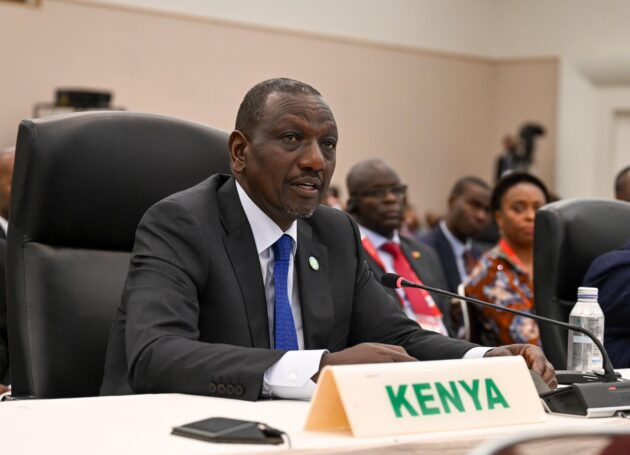
President Ruto calls for intra-African trade to eradicate poverty » Capital News
YOKOHAMA, Japan, Aug 21 – President William Ruto has called on African countries to trade more among themselves, saying this would be the most effective weapon against extreme poverty.
The President regretted that African countries continue to trade more with the outside world, saying there was need to reverse the trend.
He said intra-African trade stands at a low of 15 per cent of the continent’s total trade compared to 60 per cent in Europe and Asia.
“For our continent to unlock its vast potential, create opportunities and wealth for citizens, and drive inclusive prosperity, Africa must trade more with itself,” he said.
President Ruto, however, noted that Africa is taking steps to improve trade within itself, especially with the coming into force of the African Continental Free Trade Area.
“It is estimated that intra-African trade could exponentially rise to 50 per cent by 2035, creating immense wealth, generating millions of decent jobs, increasing opportunities for small businesses and opening new markets for local goods and services,” the President pointed out.
For this to materialise, he said, Africa must reform and revitalise agriculture, reform the global credit rating system in addition to setting up an African one, and provide a platform for the private sector to play a progressive role.
President Ruto was speaking at the Economic Pillar on Trade and Investment at the 9th Tokyo International Conference on African Development (TICAD 9) in Yokohama City, Japan, on Thursday, the second day of the summit.
He explained that the current global credit rating system often overlooks Africa’s unique economic realities, unfairly penalising countries in the continent during periods of global distress.
“Progressive reforms are essential to unlock affordable, predictable, and sustainable financing for development. I therefore support the proposal to establish an Africa Credit Rating Agency, complemented by reform of the global credit rating system to address structural inequities,” he said.
At the same time, President Ruto called for more investments in agriculture to unlock its vast potential and achieve food security and economic growth.
He pointed out that the agricultural sector employs more than 60 per cent of Africa’s population, and contributes nearly a quarter of GDP, yet its promise is far from realised.
“With 65 per cent of the world’s remaining arable land, Africa should not only feed itself, but also feed the world,” President Ruto explained.
He said deploying technology, financing farmers, investing in rural infrastructure, and increasing trade among African countries would transform agriculture in the continent from subsistence into a powerful driver of industrialisation, job creation, and shared prosperity.
“This is not a failure of potential, but of investment, infrastructure, and integration,” he said.
He underscored the role played by public-private partnerships in Africa’s economic prosperity.
On the role of the private sector in African transformation, President Ruto said it played an indispensable function as the driver of innovation, industrial transformation, and job creation.
He said it was the responsibility of governments to ensure a favourable environment with sound macroeconomic policies, modern infrastructure, and strong institutions that inspire investor confidence.
“A vibrant private sector brings not only capital to bridge financing gaps, but also innovation, technology, and efficiency critical to sustainable growth,” he said.
The President emphasised that transformation cannot be achieved through endless strategising, planning, or prevarication, saying it demands action.
“We must have the courage to make difficult decisions today, even if inconvenient in the short-term, would be beneficial to the people and countries in the long-term,” he said.
Meanwhile, President Ruto witnessed the signing of various development cooperation documents at the ongoing TICAD meeting in Yokohama City.
They include the Statement of Intent on the Samurai Bond, a financial instrument issued by foreign entities in the Japanese capital markets, signed between Kenya’s National Treasury and Nippon Export and Investment Insurance of Japan.
“Our plan to access financing in the Japanese capital markets is a leap forward in our innovative policy of diversifying resource mobilisation for priority national development and transformation,” said President Ruto.
Kenya also signed a Letter of Intent and Concept Note to Accelerate Access to Cefiderocol, a crucial antibiotic approved for effective treatment of bacterial pneumonia, in the country.
The agreement also provides for the supply of medicines with the support of the Global Antibiotic Research and Development Foundation.
It was signed between Kenya’s Ministry of Health and Shionogi and Co. Ltd of Japan, which specialises in pharmaceutical research, development and manufacturing.
Also signed is a Memorandum of Cooperation on Human Resource Development between the Kenya Industrial Research and Development Institution and the Japanese Ministry of Economy, Trade and Industry.